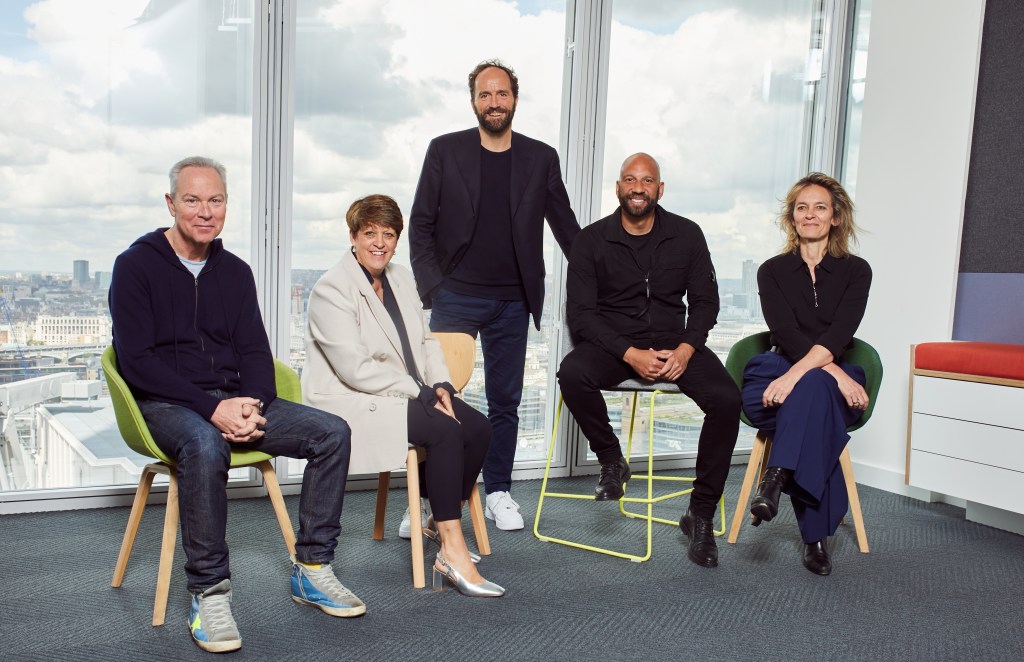Secure your place at the Digiday Media Buying Summit in Nashville, March 2-4
Brandtech Group finally closes its acquisition of Jellyfish as French investor Fimalac comes along for the ride

After 10 months of courtship, marketing tech holding company The Brandtech Group finally completed its acquisition of Jellyfish, a digital media and marketing group that helps Brandtech expand its global reach. The newly beefed up company plans to take another step toward winning more business from the giant marketers that roam the Earth.
Put together, the firms tally up some 7,000 employees globally and generate some $1 billion in revenue, according to Brandtech Group’s founder and CEO David Jones, who said the company essentially has two core models sitting above a unified technology platform: an in-housing model through its Oliver content creation shop, and then Jellyfish’s end-to-end integrated model.
“It gives us two really compelling core offers, because not everyone wants the same thing. Some people want it all joined up, [and] some people want it in house,” said Jones. “I think the one thing that is absolutely consistent is, everybody wants to deliver content better, faster and cheaper using tech.”
French financial services firm Fimalac, which owned a majority stake in Jellyfish, gets a piece of the expanded Brandtech Group company, and two of its members will sit on Brandtech’s board. Meanwhile, Jellyfish founder and CEO Rob Pierre will step back from actively running the digital performance marketing network, but stays on as chair, working with Jones to seek out new M&A opportunities.

Taking over Jellyfish is Brandtech Media CEO and Brandtech co-founder Nick Emery, who believes the single profit and loss structure that Pierre engineered over the years at Jellyfish, along with its global reach, will appeal strongly to marketers that have to overcome new types of challenges to win over consumers.
(The acquisition also boosts Brandtech Media’s holdings massively, since its existent media offerings are small. “They want to have a global conversation and they haven’t been able to compete at that level, but this obviously gives them the platform to do that,” said one media observer who spoke to Digiday on condition of anonymity.)
“If we’re talking about what a future agency model will be, we think it’s a kind of mercilessly efficient technology [underpinning], but with talent that assembles and disassembles around client problems,” said Emery. “You can really only do that if you’ve got the financial structure that enables it. And you can only do it if you’ve got a company that wins both Emmys and has more engineers and more licenses than probably any of the individual holdcos. So that’s a pretty powerful combination. But if you harness that and point that at the world’s largest marketers, then we think that’s a recipe for success.”
“Jellyfish’s technology and creative/content capabilities combined with its digital and performance media competencies should be a breath of fresh air for the likes of Nick Emery and others with traditional media backgrounds,” said Jay Pattisall, vp and principal agency analyst at Forrester, who declined to speculate on the value of the deal besides noting that performance agencies are being acquired at around 20X valuations recently. “Media, tech and content are a potent combination for full-funnel marketing capabilities and connecting brand activation with performance conversion. Nick will be like a child in Willy Wonka’s Chocolate Factory — if honest and true, he’ll make it through.”
Outside observers to the deal, whose financial details were not revealed since Brandtech Group is privately held, believe Fimalac converting its Jellyfish stake into a stake in the parent company, could also help Brandtech access more cash as it moves forward with more acquisitions down the road. Jones alluded to eyeing artificial intelligence purchases to enhance its machine-learning and other automation investments made since the company’s 2015 founding.
“We are really ambitious — you’ll see us make more acquisitions,” he said. “You’re not suddenly going to see us buy 40 companies in six months, but we’re super into AI …and we’ll be looking at making a potential acquisition in the AI space.”
The media observer who declined to speak on the record but is also familiar with Brandtech Group wondered why the deal took so long when word of the coupling began circling in August. “It clearly hasn’t been plain sailing,” said the exec. “So I’m sure there’s been some recalibration of the offer, and a lot of due diligence laid out a few dead bodies.”
Jones and Emery pushed back on that characterization, noting that Brandtech and Jellyfish have been working in parallel together for a few months on deals and negotiations. And Pattisall believes the time is right for such a combination of assets.
“Large multi-national advertisers are looking for full-funnel providers that can deliver scale and precision,” he said. “They’ll likely find that in a combination of full-service media companies and digital natives.”
The other media observer raised some doubt about whether brands are really ready for a digital-only holding company. “Until clients are really looking to consolidate in a meaningful way, I don’t know if it’s going to make a massive difference in the short term,” said the observer. “I don’t see the level of appetite.”
How much should competitors, from traditional holding company groups to the newer ones like S4 Capital and Stagwell be on the alert for greater competition from Brandtech Group? Jones scoffed at the idea of competing with any of the above, pointing to outfits like Tinuiti and BrainLabs as more on Brandtech’s footing — if much smaller than Brandtech.
Pattisall just sees more belles at the ball. “Whether Media.Monks, DEPT or Stagwell’s Brand Performance group, PE-backed agencies are arriving at global scale and creating nimble, digitally-focused and data-powered players that provide integration opportunities the traditional agencies are still working to bring together,” he said.
More in Media Buying

Future of TV Briefing: CTV identity matches are usually wrong
This week’s Future of TV Briefing looks at a Truthset study showing the error rate for matches between IP and deterministic IDs like email addresses can exceed 84%.

Canadian indie Salt XC expands its U.S. presence with purchase of Craft & Commerce
Less than a year after buying Nectar First, an AI-driven specialist, Salt XC has expanded its full-service media offerings with the purchase of Craft and Commerce.

Ad Tech Briefing: Publishers are turning to AI-powered mathmen, but can it trump political machinations?
New ad verification and measurement techniques will have to turnover the ‘i just don’t want to get fired’ mindset.







